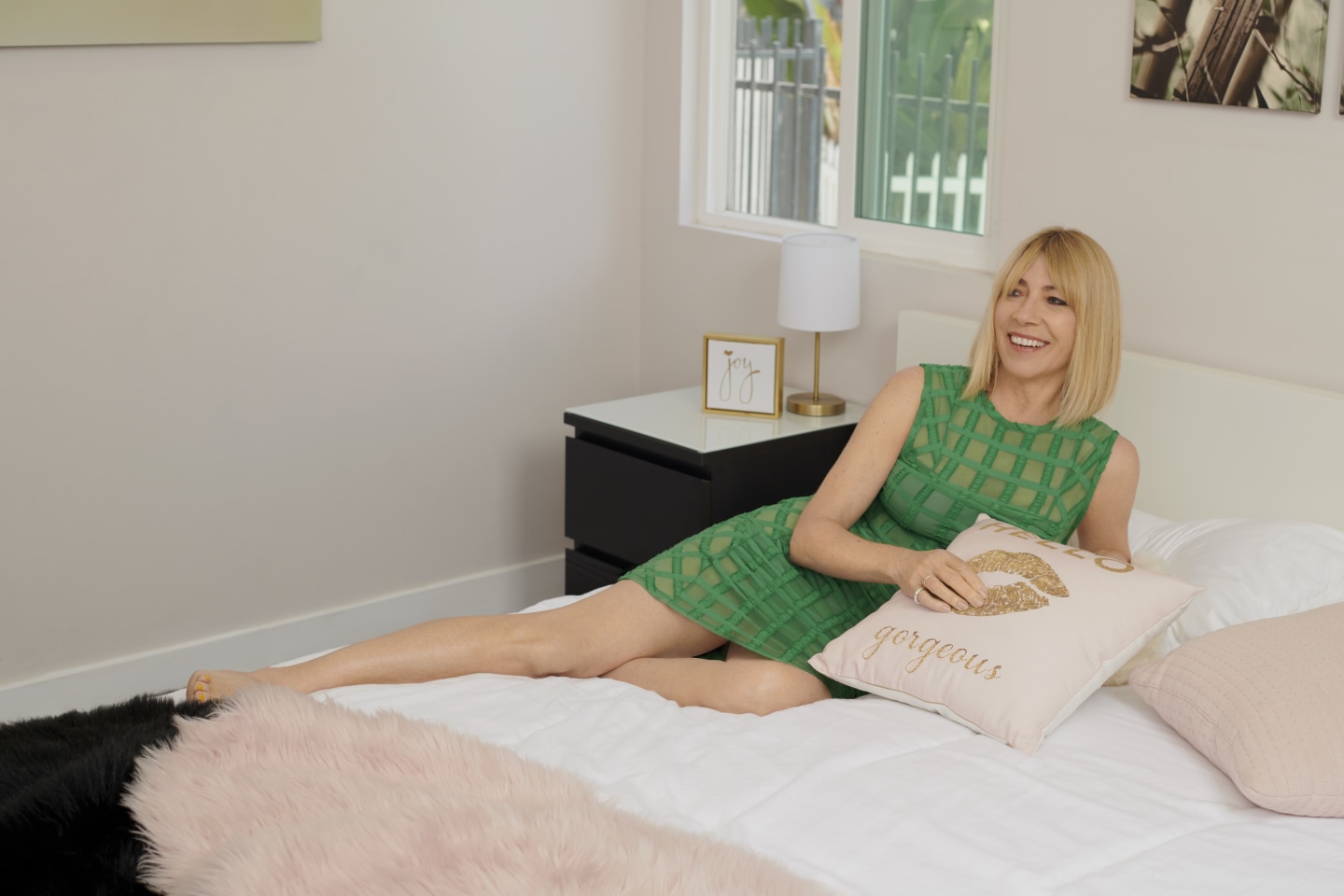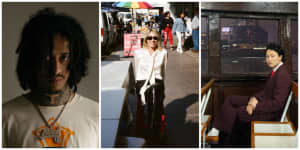
From her work in Sonic Youth to myriad art, film, and musical collaborations and side projects, Kim Gordon's been so constantly busy over the last several decades of her career that you'd expect a full-fledged solo album or two would be tucked within her intimidatingly encompassing body of work. And yet: No Home Record, one of the finest and most captivatingly intense rock records of 2019, marks the first time Gordon's struck out on her own.
"I guess I just wanted to see what would come out," she explains the impetus behind her inaugural solo outing while we speak in Matador's offices in mid-July of this year. With fellow musical genius Justin Raisen (Yves Tumor, Sky Ferreira) behind the boards, Gordon unleashes torrents of engaging musical textures that both sound like an extension of Sonic Youth's early-era noise days and resemble something totally her own.
"I met his brother accidentally at a restaurant because our tables were so close together," Gordon recalls on how she came in contact with Raisen. "He was like, 'My brother's a producer,' and Justin DM'ed me after that. I met him and he seemed cool. He has this trashy, punky sound to his drums that I like — it's good energy, it's very no-wave. Because what I do is so raw, he didn't try to bring his pop sensibility to it, but he elevated what I do into a version that made it more accessible, which is the best way to work with a producer like that. He has a lot of hip-hop in him, and I like that."
When we spoke in Matador's offices in mid-July, No Home Record was a few months from coming out — and Gordon was wasting to time leading up to its release, the press stop a short repose before heading out to Dublin for a show at the Irish Museum of Modern Art. "It's a lot of bigger paintings and a performance film I did with my niece," she explains. "We wore these Rodarte dresses and we each had two Fender amps, two guitars, and two distortion boxes. My niece is a dancer and she never played guitar before, so I told her to make sound without trying to play and move without dancing. It was kind of a cacophony."
How do you deal with the notion of art being misinterpreted?
The art world is funny. In Seth Price's book Fuck Seth Price, he talks about how people expect art to be for everyone, and obviously there's so many different levels you can get out of art. You can never say what art is good or bad — just how interesting it is, and to what degree. But in order to really read art, you have to be super academic, and then if you have that kind of critical knowledge, you probably just say "Fuck academics." People don't expect science to be that — everybody knows how an atom is split or whatever. But, somehow, in art everyone is supposed to get it. I don't get that!
Every world has its nuances, and so does the art world — music, less so, it's a much more popular form of entertainment, which is the difference, I think I see the art world becoming more like that, which is good. I think it would be better if there was actually more output, or it was integrated into education. America is a country where people are more afraid of art, whereas in Europe it's more integrated naturally into the environment. Here, we see art through a prism of design, or advertisement. It's used in a symbiotic way.
How have you seen the art world change over the years?
It's gotten completely more commercial, as new art has become more about money. I mean, it's always been about money, but...
What's your approach to writing lyrics at this point in your career?
Anything is fair game for lyrics. Sometimes I have a theme, but usually I'll just wait to hear what the music is and think of something. Sometimes I'll just start ad libbing, basically. I can't help what comes out, and then I'll edit and play stuff.
Airbnb as a concept looms large on this album, as well as in some of your recent visual art. What draws you to that subject?
It's the latest version of branding of lifestyles and selling advertising. When you look online at Airbnb options, it's like you're projecting into a story. There like little landscapes. They subvert art to be design, or it's barely art. How art has found its way into the decorative world is interesting to me.
How often do you use Airbnb?
I actually haven't used it that much, but I have noticed they tend to have a lot of black-and-white photos of other cities to make you feel part of a glamorous international circuit. You might be in Austin, but there's like pictures of Paris. How is that connected? I don't know.
As a musician, transience is baked into your entire existence.
I do like my house, but I have to accept that travel is is part of what I have to do. I'm not good at the transition. Once I'm somewhere, I'm okay, but I get kind of anxious beforehand.
How have you seen the music industry change over the last ten years?
The biggest change is the lessening of different genres — more of pop melding into the hip-hop world. I don't really see that things have evolved that much in pop music, or noise. There are different people playing and making songs, but it's more about the technology influencing music than anything else — like, making a song through MIDI, which is an interesting way of putting a song together. I'm not against that at all, it's just so different from how Sonic Youth functioned. I am curious about that idea of making a song by committee.
For a lot of pop records these days, one of the most interesting elements of them is scanning the credits to see who worked on it.
Yeah, but where do you see that data? Spotify doesn't show any information, does it?
That's probably the worst thing about those platforms — you can't get any information.
What's your greatest fear?
Well, that's easy: climate change. Also, no woman wants to become their mother. I loved my parents, and there are things you want to get from them, but there are also things you don't want to be.
